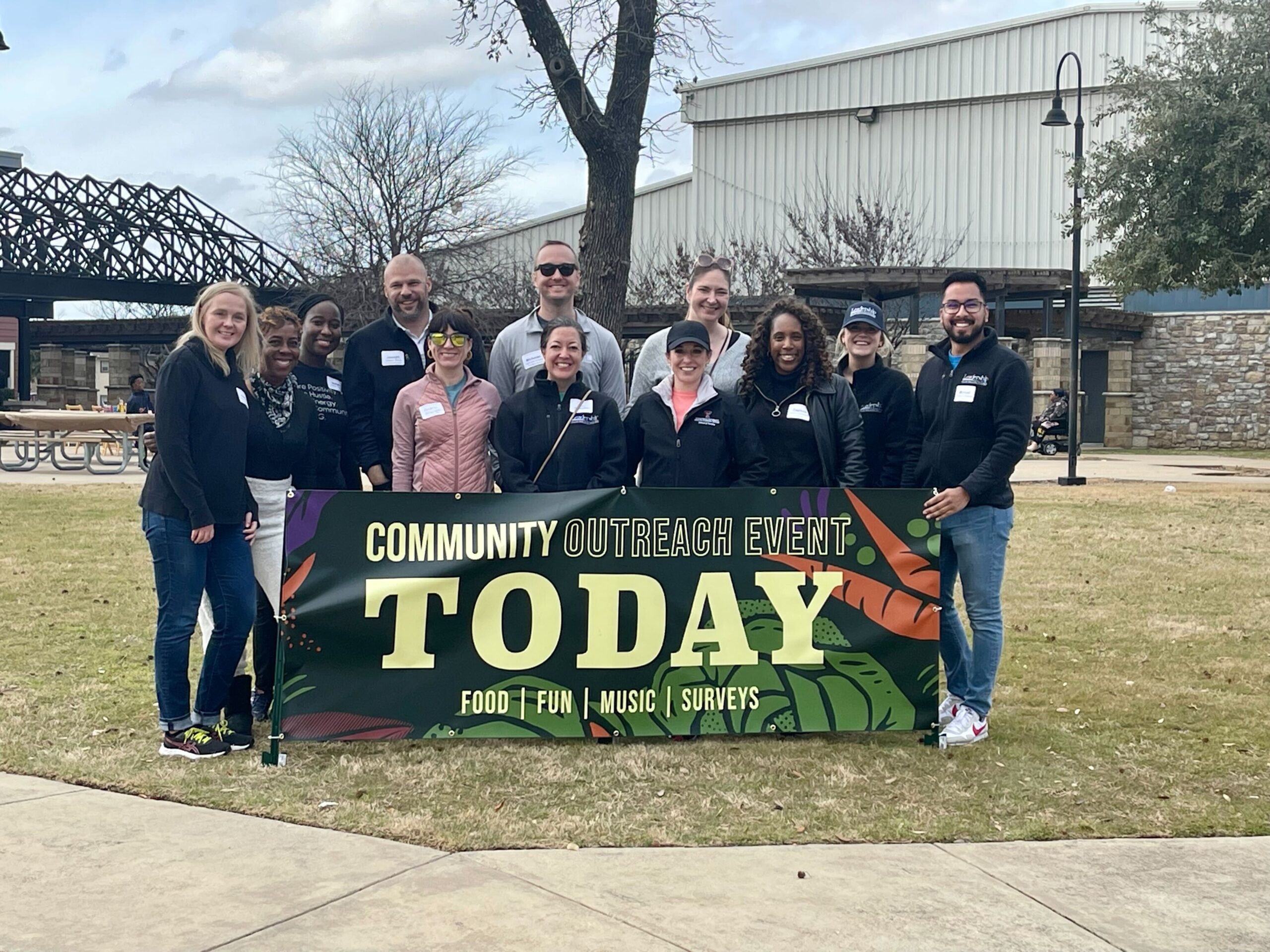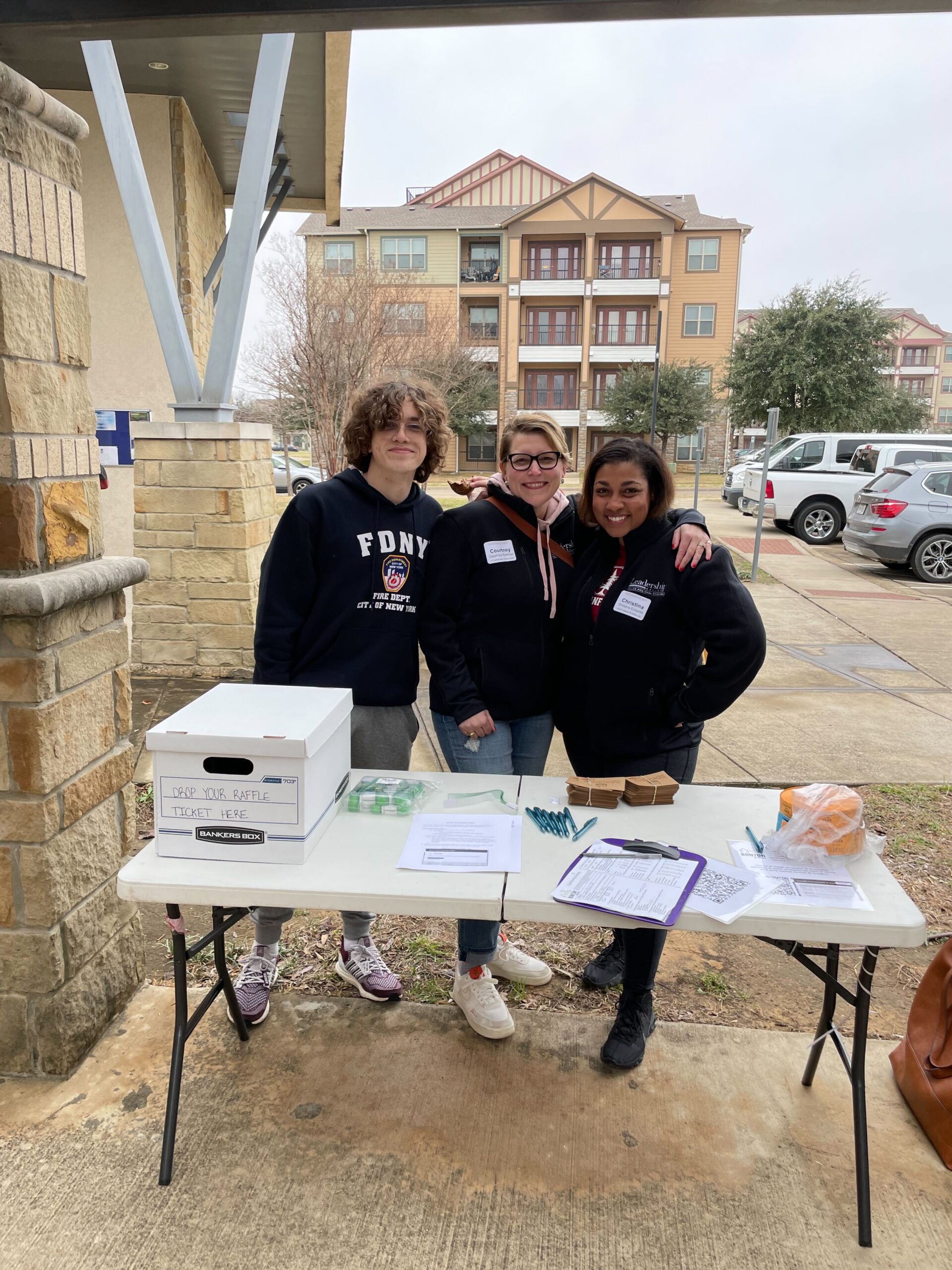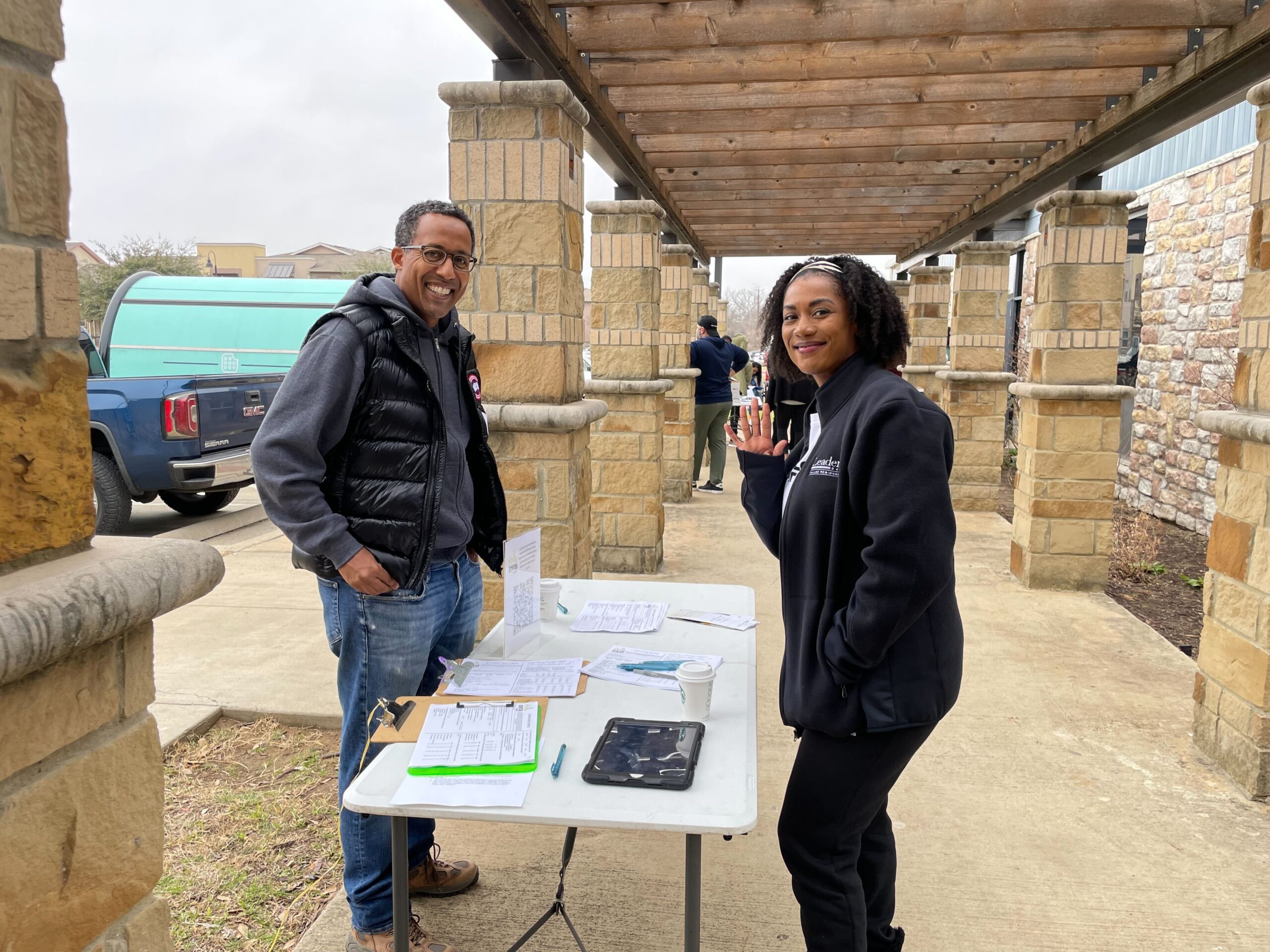by Catie George, Manager, Communications and Storytelling
Each year, members of the Dallas Regional Chamber’s (DRC) Leadership Dallas (LD) class undertake a project to address a challenge in the Dallas Region. In June, the DRC celebrated the graduation of the LD Class of 2023 (LD ’23) and the impact of a new approach to the class project they piloted.

“This year, we wanted to have a project that really utilized the skills, experience, and expertise of our class members,” said Latosha Herron Bruff, DRC Senior Vice President of Inclusion & Community Engagement, who helped the DRC’s Leadership Programs team devise a project approach that would help LD ’23 create long-term, positive impacts in Southern Dallas County.
With this new goal in mind, members of LD ’23 partnered with Bonton Farms to develop and advance the organization’s Food Desert Action Plan (FDAP). Bonton Farms works to create transformational and scalable solutions to address inequity in communities, including a focus on food insecurity as 40 communities across Dallas County suffer from these challenges.
“Bonton Farms already provides several great resources to the Bonton community; of this work came a concept to leverage grocery delivery services to meet food-access needs,” said Dr. Tiffani Wise, Regional Dean of the Texas Tech University Health Sciences Center School of Nursing in Dallas and LD ’23 class member. “This [FDAP] concept has the potential to massively change food deserts across the city, state, and nation. Our team worked to help Bonton Farms move this plan from concept to reality.”
While advancements in grocery ordering and delivery have removed food access barriers related to transportation, distance, and time, many barriers remain in food desert communities, including access to and understanding of the necessary technology and limited funds for fees or subscriptions.
“Communities can’t succeed if they’re worrying about how they’re going to get food or how it’s inaccessible to them,” said Herron Bruff. “So we must make sure that we are dismantling those barriers a lot of us are oblivious to and working together with the community to find solutions. We can tout the prosperity of the Dallas Region, but we aren’t realizing our full potential if all our communities aren’t growing and thriving.”
Submit class project applications by Friday, Aug. 11.
The goal of the FDAP is threefold: overcome mobility issues in food access by using grocery delivery at an accessible location; improve the technology infrastructure in the Bonton community through the provision of computers and technology training; and identify community centers to serve as delivery locations.

Following an initial assessment, members of LD ’23 felt confident they could create momentum for the FDAP by leveraging their expertise into five key actions: developing opportunities to listen to and learn from the community, collecting and analyzing data, preparing tools and procedures for selecting FDAP sites, developing operational procedures, and fundraising to support these and ongoing initiatives.
To support the needs-based approach to the project, LD ’23 facilitated five community outreach opportunities to assess community needs and conducted more than 260 needs assessment surveys.
“Being personally out in the community gathering these survey responses and meeting the people that would directly be impacted by this effort was amazing and extremely eye-opening,” said Manuel Calderon, Community Relations and Engagement Lead at Jacobs and LD ’23 class member.
LD ’23 members developed a site evaluation tool to assess 10 potential food access sites as part of the FDAP before selecting two final sites in Bonton and developing high-level renovation proposals to optimize them.
“The biggest inhibitor to nutritious food in food deserts is transportation and distance,” said Wise. “Through the development of food access sites, Bonton Farms will assist community members in using grocery delivery services, obtaining technological assistance and education, and accessing food benefit program resources.”
LD ’23 also created key operational resources to support the food access sites and contribute to the scalability and replicability of Bonton Farms’ FDAP. Class members developed a service site concierge job description, FDAP community qualifications criteria and application, and food benefits guide and application instructions.
“We were able to greatly accelerate the work of the Food Desert Action Plan and provide expertise that would’ve been challenging to obtain or fund without the help of the LD ‘23 class project,” said Wise. “When considering the potential impact of the work we did and the impact it will have on not only the Dallas community but communities beyond, I am so proud of what we were able to accomplish.”
LD ‘23’s work on the FDAP helped Bonton Farms secure two major partners for the FDAP. Share Our Strength, a national hunger solution organization, will accelerate the implementation of the FDAP through financial support and securing a grocery partner. The Dallas Innovation Alliance, through its Connected Dallas program, will help secure the necessary technology for the FDAP and educate community members on how to use it. The national and local partners help to ensure the positive impacts of LD ‘23’s class project continue and translate to other communities.

“Ultimately, the project impacted the Dallas community by developing an opportunity to cure food access issues. This not only brings nutritional food resources to communities, but it strengthens the community by providing technological education and training,” said Wise. “So much of what we do today requires technology, and without technology literacy, individuals are held back from reaching their full potential and accessing life-changing resources.”
All told, the 54 LD ’23 class members invested over 5,000 hours into their class project. Throughout the project, class members were separated into teams, so every member was uniquely contributing to the mission in meaningful ways.
“It was so great to see what everyone could do and was a testament to the fact that we are all needed and bring a unique value to the project,” said Wise. “Without each of us using our unique skills and expertise, we would not have been able to cover the scope of work we did.”
DRC staff are equally proud of the LD ’23 class project.
“The LD ’23 class project was a massive success, which is especially impressive given how different it was from past class projects,” said Megan Miers, Director of Leadership Programs at the DRC. “We are so excited to continue this new model with future LD classes.”
For one class member, a personal connection to the project’s impact provided an additional point of pride.
“I am proud to say that the project will benefit the community that I grew up in as a child,” said Tameji Berry, Assistant Fire Chief for the City of Dallas and LD ’23 class member. “The project shed light on the depth of resources that are available to positively impact communities and what can be done.”